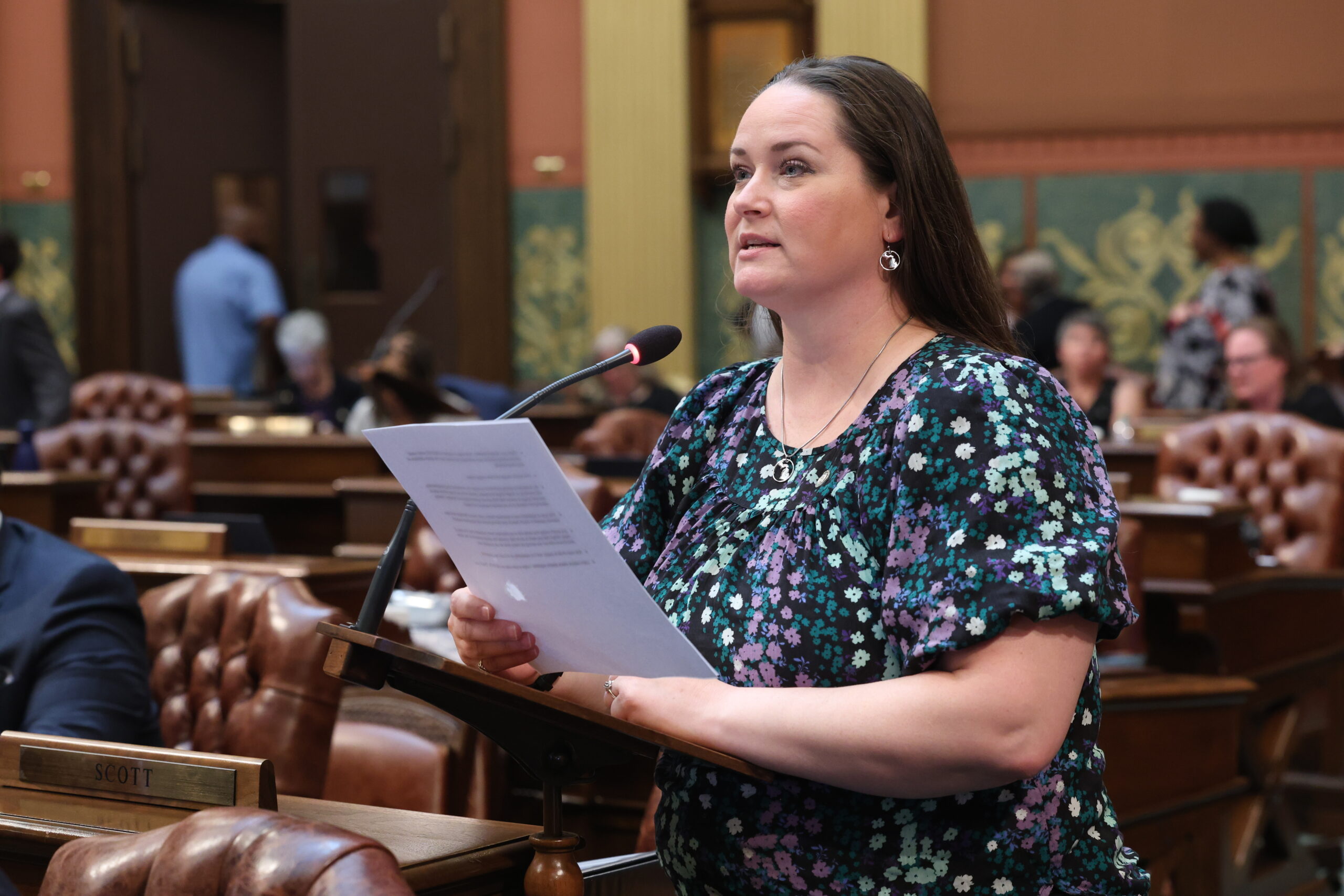Contact: Sean Rositano
(517) 373-8835
carrierheingans@house.mi.gov
Rheingans Reintroduces Lifesaving Legislation Establishing Syringe Service Programs in Michigan
LANSING, Mich., May 16, 2025 — State Rep. Carrie A. Rheingans (D-Ann Arbor) reintroduced two of her harm reduction bills from last session that would prevent opioid overdoses, reduce the spread of diseases like HIV and hepatitis C, and save lives.
Specifically, HB 4498 would empower localities to create syringe service programs (SSPs) if they so choose.
SSPs offer many services including coaching and connection to substance use disorder treatment, disease testing, overdose prevention training and helping participants in accessing medical care.
These programs already exist in many areas of the state, but with an ambiguous legal status. This legislation would fix that and expand SSPs to many areas of the state that have been hit hardest by the opioid epidemic.
“I started my career in public health volunteering in a syringe service program over 20 years ago,” Rheingans said. “What was true then is true now. SSPs and other harm reduction measures save lives. In fact, in the last year, we saw a reduction in opioid deaths from the previous year. Many experts attribute this in part to harm reduction tools like SSPs.”
SSPs have long been shown to reduce the number of deaths related to opioid use and reduce incidence of disease spread through the sharing of needles, such as HIV and hepatitis C. In fact, according to MDHHS, SSPs have been shown to reduce HIV and hepatitis C prevalence by as much as 50%, and SSP participants are 5 times more likely to access substance use disorder and recovery services than people using opioids who are not enrolled in a program.
Syringe Service Programs have already been explicitly authorized in 33 states and Washington, D.C., through legislation, while Michigan and three other states have them operating implicitly through regulation or executive order.
Rheingans’ other bill, HB 4497, would amend the state’s definition of drug paraphernalia by removing fentanyl test strips and other testing products from that classification. This change to the definition would allow people who use drugs to test their drugs to ensure that they are not contaminated with fentanyl, thereby reducing their chance of an accidental overdose and death.
Similar legislation has passed in South Dakota and Pennsylvania with bipartisan support in recent years.
Rheingans believes it is crucial that the legislature acts quickly in passing these harm reduction bills due to actions taken by the federal government.
“With the recent pulling of federal funds for naloxone, other harm reduction tools like SSPs and testing products will be that much more important,” Rheingans continued. “We’ve made progress in the last year to reduce the number of opioid overdoses and deaths. We don’t want to see our state move in the wrong direction now because the federal government has decided that preventing overdoses and death from opioids isn’t a priority.”
Last term, Rheingans’ SSP Bill passed the House unanimously and her test strips bill passed the House with overwhelming bipartisan support.
###

